第84章
IT was when the heats of noon died gradually away from the earth, that Glaucus and Ione went forth to enjoy the cooled and grateful air. At that time, various carriages were in use among the Romans; the one most used by the richer citizens, when they required no companion in their excursion, was the biga, already described in the early portion of this work; that appropriated to the matrons, was termed carpentum, which had commonly two wheels; the ancients used also a sort of litter, a vast sedan-chair, more commodiously arranged than the modern, inasmuch as the occupant thereof could lie down at ease, instead of being perpendicularly and stiffly jostled up and down. There was another carriage, used both for travelling and for excursions in the country; it was commodious, containing three or four persons with ease, having a covering which could be raised at pleasure; and, in short, answering very much the purpose of (though very different in shape from) the modern britska. It was a vehicle of this description that the lovers, accompanied by one female slave of Ione, now used in their excursion. About ten miles from the city, there was at that day an old ruin, the remains of a temple, evidently Grecian; and as for Glaucus and Ione everything Grecian possessed an interest, they had agreed to visit these ruins: it was thither they were now bound.
Their road lay among vines and olive-groves; till, winding more and more towards the higher ground of Vesuvius, the path grew rugged; the mules moved slowly, and with labor; and at every opening in the wood they beheld those grey and horrent caverns indenting the parched rock, which Strabo has described; but which the various revolutions of time and the volcano have removed from the present aspect of the mountain. The sun, sloping towards his descent, cast long and deep shadows over the mountain; here and there they still heard the rustic reed of the shepherd amongst copses of the beechwood and wild oak. Sometimes they marked the form of the silk-haired and graceful capella, with its wreathing horn and bright grey eye--which, still beneath Ausonian skies, recalls the eclogues of Maro, browsing half-way up the hills; and the grapes, already purple with the smiles of the deepening summer, glowed out from the arched festoons, which hung pendent from tree to tree. Above them, light clouds floated in the serene heavens, sweeping so slowly athwart the firmament that they scarcely seemed to stir;while, on their right, they caught, ever and anon, glimpses of the waveless sea, with some light bark skimming its surface; and the sunlight breaking over the deep in those countless and softest hues so peculiar to that delicious sea.
'How beautiful!' said Glaucus, in a half-whispered tone, 'is that expression by which we call Earth our Mother! With what a kindly equal love she pours her blessings upon her children! and even to those sterile spots to which Nature has denied beauty, she yet contrives to dispense her smiles: witness the arbutus and the vine, which she wreathes over the arid and burning soil of yon extinct volcano. Ah! in such an hour and scene as this, well might we imagine that the Faun should peep forth from those green festoons; or, that we might trace the steps of the Mountain Nymph through the thickest mazes of the glade. But the Nymphs ceased, beautiful Ione, when thou wert created!'
There is no tongue that flatters like a lover's; and yet, in the exaggeration of his feelings, flattery seems to him commonplace. Strange and prodigal exuberance, which soon exhausts itself by overflowing!
They arrived at the ruins; they examined them with that fondness with which we trace the hallowed and household vestiges of our own ancestry--they lingered there till Hesperus appeared in the rosy heavens; and then returning homeward in the twilight, they were more silent than they had been; for in the shadow and beneath the stars they felt more oppressively their mutual love.
It was at this time that the storm which the Egyptian had predicted began to creep visibly over them. At first, a low and distant thunder gave warning of the approaching conflict of the elements; and then rapidly rushed above the dark ranks of the serried clouds. The suddenness of storms in that climate is something almost preternatural, and might well suggest to early superstition the notion of a divine agency--a few large drops broke heavily among the boughs that half overhung their path, and then, swift and intolerably bright, the forked lightning darted across their very eyes, and was swallowed up by the increasing darkness.
'Swifter, good Carrucarius!' cried Glaucus to the driver; 'the tempest comes on apace.'
The slave urged on the mules--they went swift over the uneven and stony road--the clouds thickened, near and more near broke the thunder, and fast rushed the dashing rain.
'Dost thou fear?' whispered Glaucus, as he sought excuse in the storm to come nearer to Ione.
'Not with thee,' said she, softly.
At that instant, the carriage, fragile and ill-contrived (as, despite their graceful shapes, were, for practical uses, most of such inventions at that time), struck violently into a deep rut, over which lay a log of fallen wood; the driver, with a curse, stimulated his mules yet faster for the obstacle, the wheel was torn from the socket, and the carriage suddenly overset.
Glaucus, quickly extricating himself from the vehicle, hastened to assist Ione, who was fortunately unhurt; with some difficulty they raised the carruca (or carriage), and found that it ceased any longer even to afford them shelter; the springs that fastened the covering were snapped asunder, and the rain poured fast and fiercely into the interior.
In this dilemma, what was to be done? They were yet some distance from the city--no house, no aid, seemed near.